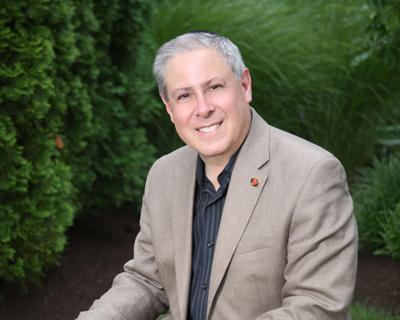I’m a Holocaust brat. Kind of like an Army brat, except that traveling never ends. Once exposed to the Holocaust, it stays with you. But my story is different. While other Holocaust brats remember the cruelty, I remember the goodness.
Kindness is the value that remains with me from my family’s horrifying experience. That’s because my parents and grandmother were hidden by Righteous Gentiles in a 4-by-6-foot room in the middle of Warsaw from 1941 through 1944. As my wife and I isolate at home, COVID-19-fatigued, I wonder how my parents and grandmother endured their ordeal without going insane. I know that kindness saved them both physically and mentally.
Their story started in Miedzyrzec-Podlaski, Poland (known as Mezritch) a town of 17,000 Jews and 3,000 Catholics near Ukraine. My grandmother was a dentist and treated many in the Catholic population, including the local Polish prince, Prince Potocki.
Grandma Lea Lew was known for her kindness – volunteering at both the Catholic high school and the Jewish high school, giving free services to the poor and befriending both the Jewish and Catholic populations.
One of her patients was the wife of Prince Potocki’s secretary, and this woman’s daughter was having problems passing her matura, the advancement exam to college. My grandmother asked my father to tutor the daughter, and she passed her exam. At the exam site, she met her future husband, Edward Teski.
The Teski Family never forgot this act of kindness. When the Nazis entered Mezritch in 1939, my parents and grandmother ran for their lives, intermittently hidden by my grandmother’s maid, Frania, under her kitchen, in a typhus hospital where the patients had been killed and in a safe haven where they had bribed their way in. With nowhere else to hide, my father slipped a note under Edward Teski’s apartment door and asked if he and his wife, Nusia, would harbor them. They agreed, and my parents and grandmother hid in their apartment in the middle of Warsaw.
New Year’s Eve 1941, the Nazis came, guns drawn, looking for Edward Teski who was working with the Polish underground. A 16-year-old Polish maid, Jadzia Stankowicz, who was working for the Teski’s, answered and, upon hearing “Gestapo, let us in,” put the chain on the door and faked trying to get the chain off. She motioned for my family to flee.
My parents ran up a back stairway to the top floor and my grandmother hid behind an armoire. They all survived to live another day. Jadzia was arrested, put on a death train to Treblinka, jumped the train and returned to the Teski’s. I was honored to give Jadzia the Yad Vashem medal in 1999 and through my Polish brother Leonard Teski, Edward’s son, stayed in touch with Jadzia until her death. This story could have ended there, but it didn’t. You see, kindness keeps going like ripples in a pond.
In January 2020, Leonard called to tell me that Jadzia’s son Krzysztof Jozwik had stage four pancreatic cancer and had been given a death sentence by the doctors. Could I help in any way?
How could I not? I wouldn’t be here, nor would my children, my brothers, my niece and nephew and their children – 10 people in all – if not for Jadzia’s bravery.
I connected Krzysztof with a British microbiologist who had helped a close friend live with stage four pancreatic cancer for four years. He developed a plant-based elixir that Krzysztof began to drink every day. By May, the tumor had stabilized, and Krzysztof was able to plant his garden, hold his new granddaughter Alexandra and enjoy life.
I couldn’t help but imagine the Teski’s and Jadzia helping my parents and grandmother stay positive during their hiding. So, I resolved to be Krzysztof’s cheerleader, returning the kindness.
Every week, I Skyped with Krzysztof’s daughter-in-law to monitor progress, sending positive messages to him. Every other week, I spoke to the British doctor to make sure that he was coordinating with the family. Knowing that Krzysztof enjoyed gardening, throughout the summer, I sent Krzysztof pictures of my garden and he sent me pictures of his. I felt a cosmic kinship which I am sure the Teski’s and Jadzia also felt with my parents and grandmother.
The doctor along with my friend, Don Washkewicz, took great interest in Krzysztof, not just because of his condition but because of this story. Kindness attracts many angels. The doctor and Don were two of many in this saga. Through their collective efforts, an anonymous donor paid $5,000 a month for five months of treatments. Thereafter, my wife and I – and generous family and friends – continued the support.
Sadly, Krzysztof died this past week. I had pondered that, if Krzysztof dies, what was accomplished? But I remembered that the Teski’s and Jadzia just focused on each day. I know that my actions and those of my wife, the doctor, family and friends, gave Krzysztof many more days.
After his death, Krzysztof’s daughter-in-law Karolina sent me an email: “We have become like family. Oceans cannot separate us. You have changed us. We are different people. We will stay kind.”
Kindness is the gift that keeps on giving throughout time. That is the moral of this story and the antidote for our country and world.
Stuart Muszynski is the CEO and president of Values-in-Action Foundation in Mayfield.






